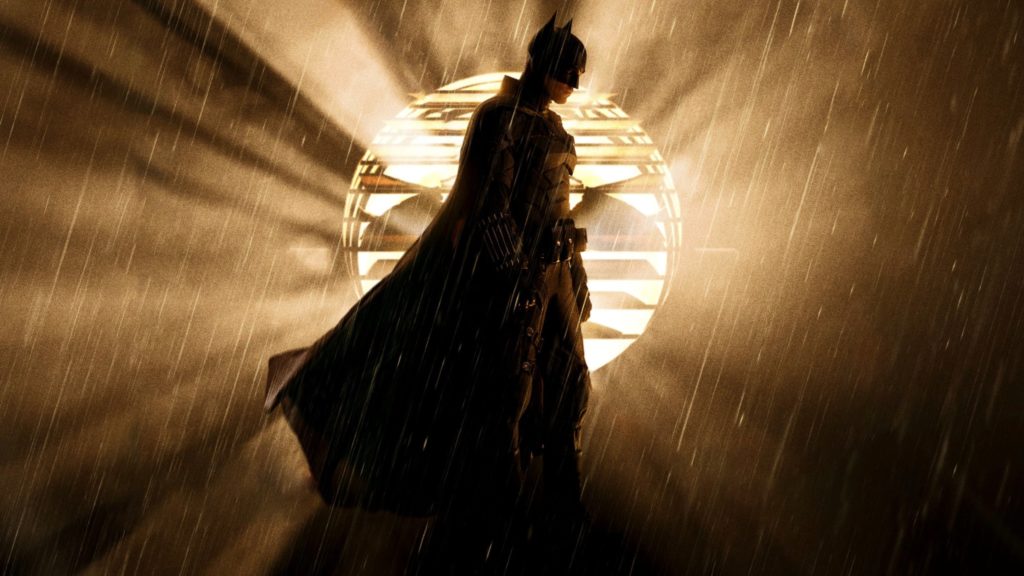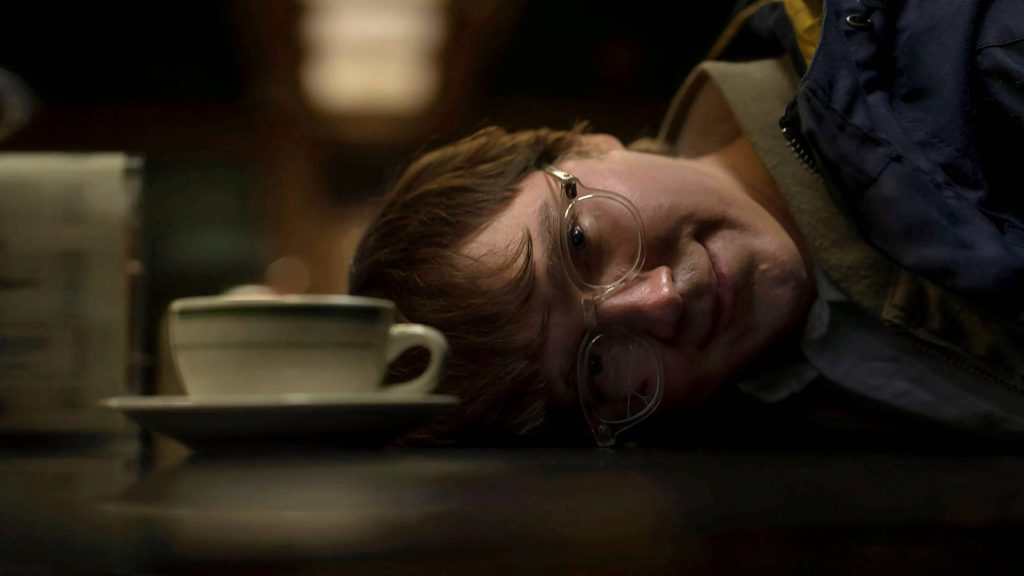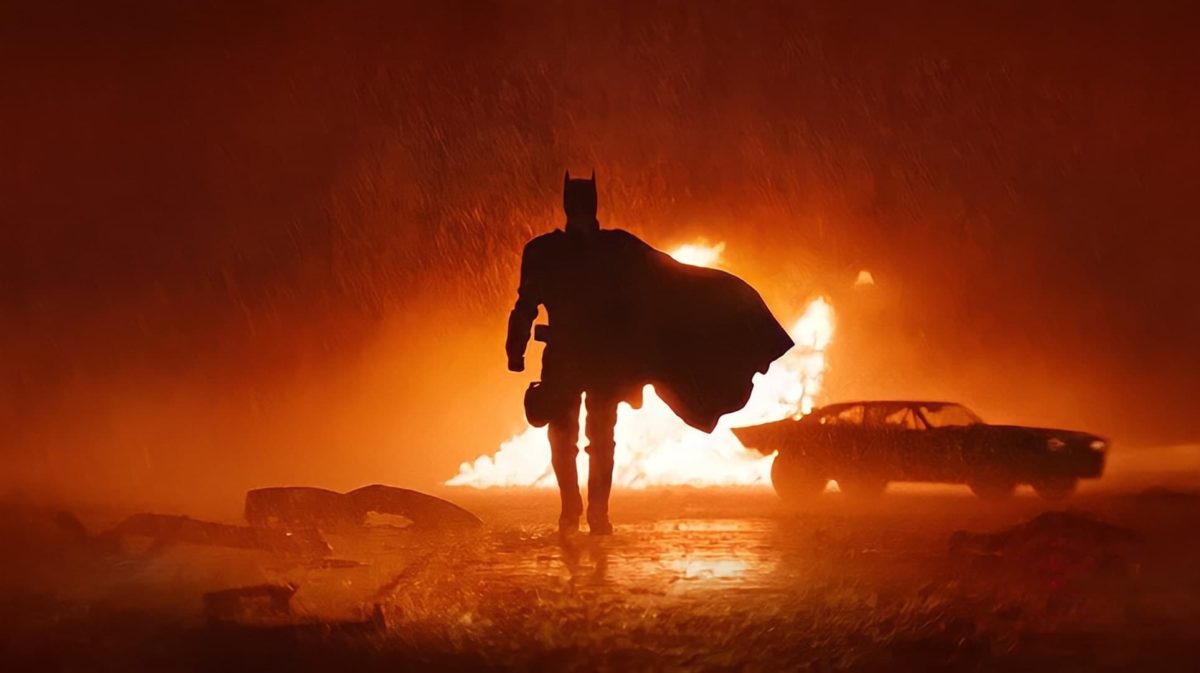The darkest knight
I kept waiting, for three hours, for The Batman to really sock me in the jaw. Give me something profoundly stirring to think about. But despite its overwhelming length and its prodigious visual exertion, it feels a bit slick and empty. Threads and ideas rarely go anywhere meaningful.
Take the film’s first few minutes. The movie opens with an extended surveillance shot, scored to a Catholic hymn and some semi-horny breathing, suggesting a film that explores our loss of privacy as an omnipresent, soul-crushing threat. At a minimum, it suggests that privacy will be a key theme. Instead, anything resembling thematic consideration of the implications of 21st century surveillance ends up a tertiary concern for the film at best, well behind its main objective of looking cool.
That lack of depth extends to characters: For example, Andy Serkis gets almost nothing interesting to do as Alfred, providing neither sage guidance nor prickly commentary. Out of the various do-badders, only Paul Dano’s Riddler rises above the pack as something memorable, in this case an unhinged, Rorschach-esque creep who takes vigilantism too far. Colin Farrell’s Penguin also comes close to sublimity thanks to his ridiculous fat suit and “spicy meat-ah-ball” fake accent — and, frankly, if the movie had met Farrell halfway in the camp department, it would probably be a lot more fun as a movie.

Where the movie has no trouble presenting a fully-fleshed and -imagined identity is in its visuals: Matt Reeves has constructed just about the darkest, most aggressively film noir Batman visual profile imaginable. Everything happens both at night and in shadows or tight spaces. Not once did I ever feel like I was in a comfortable space with familiar, identifiable boundaries. Everything is drowned in black.
This not strictly a bad thing; the movie’s full-tilt, grimdark cinematography makes room for plenty of breathtaking compositions with the drama and grace of epic comic book spreads. The darkness lends strong outlines to shapes that pop with high-contrast color. For example, some of the shots during an epic highway chase are flame-lit with an incandescent orange. A dramatic, upside-down POV shot of Batman (an emo Robert Pattinson) approaching the camera is one of the most riveting shots I’ve seen in months. Similarly memorable is Dano’s instantly-iconic exchange with Pattinson in Arkham Asylum, his unnerving, hazy white lighting an unexpected mirror of Batman’s perpetual gloom.
It’s certainly a stylish movie; if only it could get us to care and think a little bit more about its David Fincher-esque story or thematic content. It’s a little bit unfair to hold it up to the standard of The Dark Knight or even Batman Begins, but it’s clearly in their lineage and so begs comparison: Those movies leveraged Christopher Nolan’s skill at mythmaking, elevating Batman’s trevails to stirring cape opera. The Batman makes some stabs at psychological and political depth, including its ending that feels deeply indebted to Joker’s quasi-class conscious finale (and also indebted to footage of the January 6 riots). Perhaps the thought The Batman is most eager to explore is the inherent corruption of the police (and vigilantism), but even that is really only surface-level. Reeves still lionizes a lazily-written, noble good gun in Jim Gordon (Jeffrey Wright). Meanwhile, the thread surrounding Selina Kyle’s (Zoe Kravitz) job at an exploitative nightclub feints towards some feminist themes without ever digging its claws in.

The one unabashed success in the film is its music. This might be my favorite Michael Giacchino score ever, and one of my favorites in any movie in a long time. The score’s flair heightens the drama and honestly almost convinces you the movie is deeper and richer than it really is. The recurring motif of “Ave Maria” is also highly effective, suggesting an element of spiritual struggle not quite delivered by the screenplay.
It is, overall, an engaging movie-going experience despite its marathon length; or, at least somewhat, because of it: The movie is able to indulge in its story, and some of the excesses land. And yet, I can’t help but wonder if the movie had trimmed an hour of its sloggiest, least-developed material and focused on a few key ideas, it might have been one of the most exciting of the year.
- Review Series: 2022: Year in Film
Is It Good?
Good (5/8)
Dan is the founder and head critic of The Goods. Follow Dan on Letterboxd. Join the Discord for updates and discussion.


2 replies on “The Batman (2022)”
Yep. This is a perfectly fine movie that wants to be a perfectly fine TV show, though it approaches conclusive evidence that there are a lot of people who confuse length with depth and, apparently, underlighting with themes.
The only thing I ended up feeling strongly about was the score. Everything else I had something mixed to say. Though I do think it looks cool, even if its darkness (in the literal visual sense) grows exhausting.